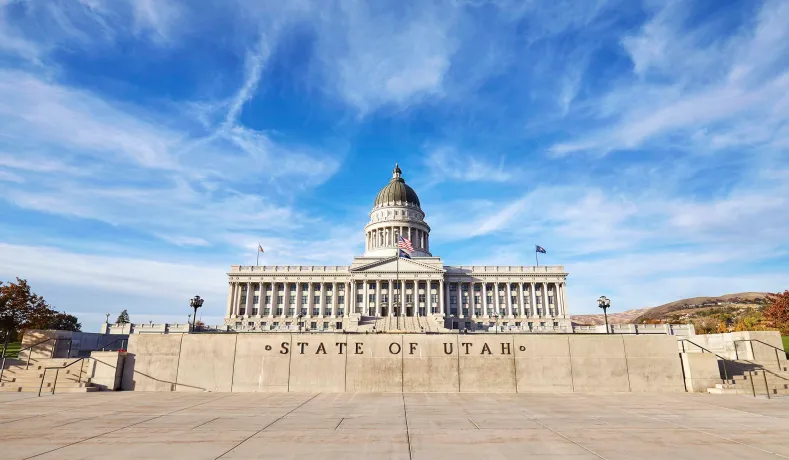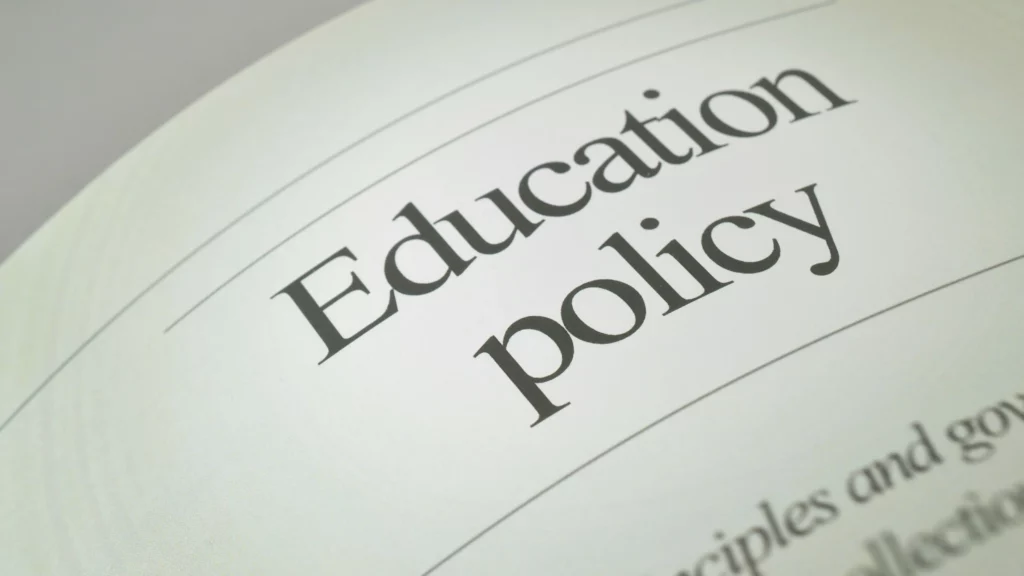

Insights & Takeaways is Sutherland Institute’s official blog that informs the public and policymakers alike. The blog addresses important issues through the two distinct yet complementary lenses of the seasoned policy professional and the engaged citizen.
 Insights: analysis, research, and informed commentary from Sutherland experts. For elected officials and public policy professionals.
Insights: analysis, research, and informed commentary from Sutherland experts. For elected officials and public policy professionals.
 Takeaways: the most important things voters need to know. For civically engaged citizens.
Takeaways: the most important things voters need to know. For civically engaged citizens.
The importance of federalism and Utah’s public lands lawsuit
A recent Sutherland Institute Congressional Series event featured Representative Celeste Maloy discussing the importance of federalism.
The real issues at stake in the debate over Amendment D
It is confusing — and it’s another example of lawmaking moving from a duly elected legislative body to the courts.
Simple reforms to make school district websites better for parents
Districts can make sure information about curriculum is easy to find, that it’s organized in a user-friendly way, and that links are working and updated.
Missing the significance of the voter initiative amendment
So far, the debate over the amendment is missing one of the most important constitutional principles at stake: the separation of powers.
Five bygone elections that echo into 2024
Another quadrennial brings another round of the same hyperbole. Who’s to say none of them apply to 2024? But an honest look at past elections suggests that there is nothing new under the sun.
How nonprofit Next Step to Success teaches kids the ‘success sequence’
Nonprofit and community collaboration can help fill gaps of support for students in areas where public policy can’t reach as effectively.
How Utah can increase parent access to curriculum
To advance the work of individual educators without overburdening them with new requirements, the Legislature could enact a program that rewards teachers who proactively make curriculum information accessible to parents in a robust way.
Federal agency ‘guidance’ uses a backdoor approach to avoid open public process
States should collect and make publicly available the guidance they are given so that it can be assessed and, as necessary, criticized and challenged.
A framework for the congressional efforts in education policy
Congress can reduce its interference in K-12 education by changing the way it approaches education issues already on its desk.
UEA lawsuit filings offer 3 civics lessons
Voters should know that direct lawmaking in education rests with the Utah Legislature and not the Utah State Board of Education, the governor, or any other entity.
Does Canvas give parents robust access to curriculum?
Widespread availability of Canvas isn’t the end of the quest for more parent access to learning tools – it should spark discussion about how to achieve a higher parent access standard.
Biden bows out: What it means for the presidential election
The president’s decision to drop out of the race for a second term will impact more than just the 2024 election.
New Sutherland survey reflects optimism about religious freedom in Utah
Large majority of likely voters in Utah – even among those who are not religious – agree that religious freedom is a net benefit for society.
Who governs education in Utah?
Utah Gov. Spencer Cox has announced his new senior advisor of education, prompting interest in Cox’s education priorities. But in Utah, the governor has less direct policymaking influence in education than other entities. Here’s an explanation.
How does the ‘YES’ program teach the success sequence?
Nonprofit offers research-based health education programs that could align well with Utah’s grade 7-12 standards and help teach outcomes of the success sequence.
The rise of ‘faction’: The presidential election of 1800 set the standard for acrimony
The political propaganda and hot-button issues of today’s presidential elections were foreshadowed two centuries ago.
Constitutional principles should guide – or stop – election challenges
When a candidate contests an announced final election outcome, how do we discern whether that act supports or undermines the spirit of our Constitution?
Removing work disincentives in the social safety net will strengthen upward mobility and the economy
Policymakers should first look to the states as engines of innovation and reform.


















